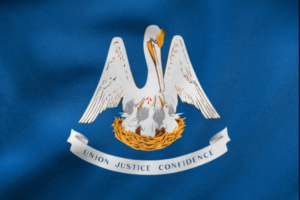 The time has come at last. While we’ve already examined two of this November’s three Gubernatorial races in Kentucky and Mississippi, we now turn to the open contest down in Louisiana.
The time has come at last. While we’ve already examined two of this November’s three Gubernatorial races in Kentucky and Mississippi, we now turn to the open contest down in Louisiana.
The Pelican State is one of just seven crossover states – alongside Kansas, Kentucky, Nevada, New Hampshire, North Carolina and Vermont – where the state’s sitting Governor and its 2020 Presidential choice were from different parties.
Fortunately for Republicans, incumbent Democratic Governor John Bel Edwards, who managed to fight uphill and win in both 2015 and 2019, is now term-limited. That sets up a wide-open contest in an especially wide-open primary. Remember, Louisiana uses a blanket primary system where all candidates run in one contest and then the top-two candidates advance to a run-off. The blanket primary is set for October 14th, while the run-off will occur on November 18th.
There will be just one Democratic choice on that October 14th ballot: Shawn Wilson, Edwards’ preferred successor and his Secretary of Transportation and Development.
This is only the second campaign of Wilson’s political career. His first was back in 2007, when he ran for a seat on the Lafayette Parish Council. Wilson came second in that primary, advancing to the run-off, which he subsequently lost.
After that defeat, Wilson went back to the state’s Department of Transportation and Development, where Gov. Edwards tapped him for the top job upon assuming office in 2016.
In Wilson’s campaign, he’s emphasizing his infrastructure experience, pledging to “build bridges” across partisan divides. He also cites his ability to break decades-long logjams on infrastructure projects as proof that he’s qualified to be Governor.
On the other side of the aisle, there are a few Republicans who’ve qualified for the ballot, but one far out ahead of all of them. Attorney General Jeff Landry has managed to secure the support of the Louisiana Republican Party, senior Senator Bill Cassidy and former President Donald Trump.
Unlike Wilson, Landry’s got plenty of political experience. Landry also started out in 2007, running for a State Senate seat. On top of that, he lost his first race in a run-off as well. Landry, however, stuck with campaigning and won a Congressional seat in 2010.
Yet after Louisiana lost a seat in the 2010 Census, Rep. Landry was pitted against fellow Congressional Republican Charles Boustany Jr. in 2012 and lost by twenty-two points. Nevertheless, Landry managed to bounce back in 2015 by winning the Attorney General’s office and then scoring a landslide re-election in 2019.
Landry’s ads tend to focus on crime – with an emphasis on his background as a police officer and his tenure as Attorney General – as well as education. Really it’s the playbook most GOP Gubernatorial nominees have used since Glenn Youngkin’s 2021 victory in Virginia. Landry, of course, has the additional advantage of fighting on much friendlier ground in Louisiana.
On that point, Landry is leading in all the early polling of this race, which tends to show him with about 30% to 35% in the October blanket primary. At the same time, Wilson’s support usually resides in the high 20s, with no other candidate breaking double digits.
Who are those other candidates? Among them are Independent Attorney Hunter Lundy and four Republicans: State Senate Majority Leader Sharon Hewitt, State Rep. Richard Nelson, State Treasurer John Schroder and former Gov. Jindal’s Chief of Staff Stephen Waguespack.
These seven candidates will meet for a debate hosted by local TV stations on September 7th. Expect the front-runners to set the stage for the November 18th run-off, while the other contenders try a gambit to grab attention and upend the October 14th race.
Ultimately, Louisiana takes great pride in having the final word in an election cycle, and whichever party wins this race earns the opportunity to start off a Presidential cycle on the right foot.